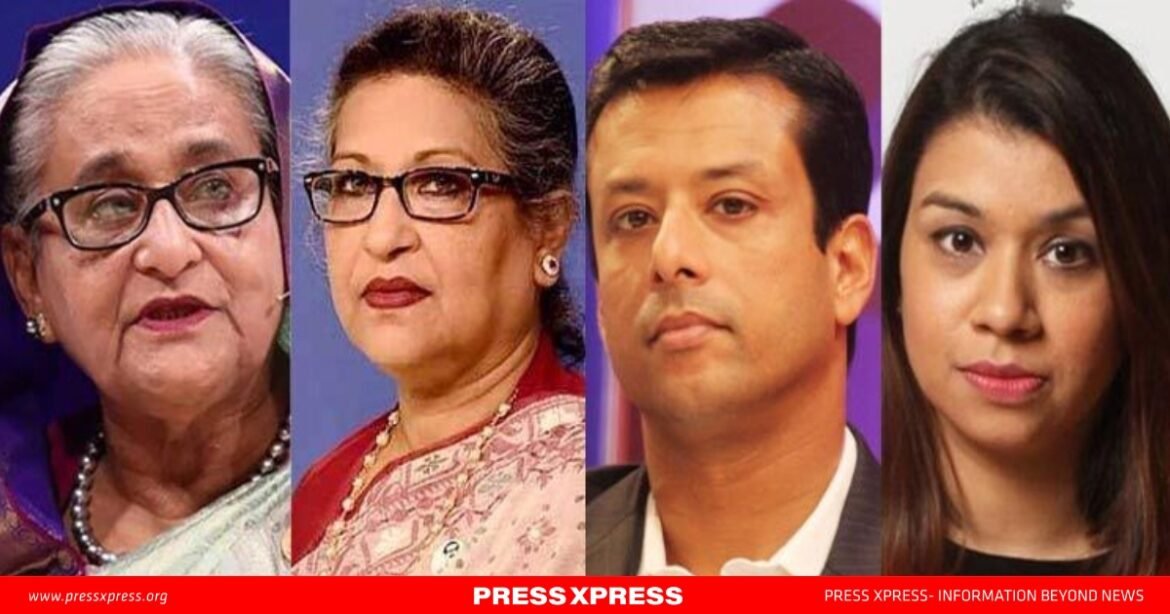Rooppur Scandal or Smear? Allegations Shake Bangladesh’s Political Landscape
The recent corruption allegations surrounding Sheikh Hasina, Bangladesh’s ousted Prime Minister, her son Sajeeb Wazed, and her niece Tulip Siddiq, have attracted significant attention, particularly concerning the $12.65 billion nuclear deal for the Rooppur Nuclear Power Plant. These allegations, involving claims of embezzlement, money laundering, and offshore financial irregularities, have been dismissed by the accused parties as “bogus” and part of a broader political smear campaign. However, these claims come amid the volatile political landscape in Bangladesh, which has been marked by intense uprisings, particularly the July-August uprising, and political instability following the fall of Hasina’s government.
This report analyzes the corruption allegations against Hasina’s family in the context of the Rooppur Nuclear Power Plant project, while also exploring the broader political implications of the case, including its intersection with the July-August uprising.
Background: The Rooppur Nuclear Power Plant Project
The Rooppur Nuclear Power Plant project was a monumental undertaking, aimed at addressing Bangladesh’s growing energy needs. In 2015, the Bangladesh government signed a deal with Russia’s state-owned Rosatom for the construction of two nuclear reactors, each with a capacity of 1,200 megawatts. The project was valued at $12.65 billion, making it one of the largest infrastructure projects in Bangladesh’s history. The involvement of Rosatom, a major player in the global nuclear industry, was intended to bring advanced technology and significant energy resources to Bangladesh.
However, the Anti-Corruption Commission of Bangladesh recently launched an investigation into allegations of corruption, embezzlement, and money laundering associated with this project. The commission claims that financial irregularities, involving as much as $5 billion, were linked to offshore accounts tied to Hasina, her son Sajeeb Wazed, and her niece Tulip Siddiq. While Rosatom has firmly denied the allegations, stating that it follows a transparent procurement process and is committed to combating corruption, the case has sparked significant debate, with the family vehemently rejecting the claims.
The Allegations: A Political Smear Campaign?
Sajeeb Wazed, Hasina’s son, has publicly dismissed the accusations, calling them part of a political witch hunt. He refutes the idea that his family could have siphoned off billions from a project of this scale, especially given their long-term residence abroad in the United States and the United Kingdom, with no direct access to offshore accounts linked to the alleged irregularities.
While the corruption allegations remain unproven, their timing is noteworthy. They coincide with the recent political turmoil in Bangladesh, which culminated in the July-August uprising. The accusations against Hasina’s family are seen by many as part of a broader effort to discredit the former Prime Minister and undermine her political legacy.
The July-August Uprising: Political Context
The July-August uprising in Bangladesh was a significant event in the country’s modern political history. It followed a period of growing discontent with Hasina’s government, fueled by allegations of authoritarianism, political repression, and economic inequality. The uprising, which involved widespread protests and clashes between demonstrators and security forces, led to the ousting of Hasina’s administration and the establishment of an interim government.
Hasina’s flight to New Delhi in early August following the deadly uprising marked a dramatic turn in the political landscape. As she fled the country, questions arose regarding her return to Bangladesh, with some suggesting that her exile was an attempt to avoid the political fallout from the uprising and subsequent investigations into corruption. The interim government, which has taken charge in Dhaka, has reportedly requested her return, but Hasina’s return remains uncertain.
The political context of the allegations against Hasina’s family cannot be ignored. The accusations come at a time when her political opponents are seeking to undermine her image and discredit her leadership. The use of corruption allegations as a political weapon is not new in Bangladesh’s turbulent political environment, where leaders from different factions have frequently accused each other of corruption and mismanagement.
International Implications and Reactions
The international response to the corruption allegations has also been significant. Rosatom, the Russian state corporation overseeing the Rooppur project, issued a statement refuting the claims of corruption, emphasizing its commitment to transparency and anti-corruption measures. In addition, Tulip Siddiq, a British Member of Parliament, has denied any involvement in the alleged activities. Her office confirmed that British Prime Minister Keir Starmer had confidence in her, despite the allegations.
The role of international actors, including Russia and the United Kingdom, in the Rooppur project adds an additional layer of complexity to the situation. The international community’s reaction to the corruption allegations may have implications for future foreign investments in Bangladesh and its relationship with key partners such as Russia and the United Kingdom.
Political Allegations and Their Broader Implications
The corruption allegations against Sheikh Hasina, her son, and her niece in relation to the Rooppur Nuclear Power Plant project are deeply intertwined with the political crisis in Bangladesh. While the accused have strongly denied the charges and rejected them as part of a smear campaign, the timing and nature of the allegations suggest that they are deeply embedded in the ongoing political struggle in Bangladesh. The July-August uprising, which led to Hasina’s ousting and the establishment of an interim government, has further polarized the political landscape, making it difficult to discern whether these allegations are politically motivated or grounded in truth.
Regardless of the outcome of the ongoing investigations, the case highlights the fragile nature of Bangladesh’s political environment, where corruption allegations are often weaponized in the fight for political power. The international community will be closely monitoring the developments, especially given the potential impact on the Rooppur Nuclear Power Plant project and Bangladesh’s broader political stability.
In the coming months, the legitimacy of the allegations and the response from the interim government, along with potential political fallout, will continue to shape the trajectory of Bangladesh’s political future.


